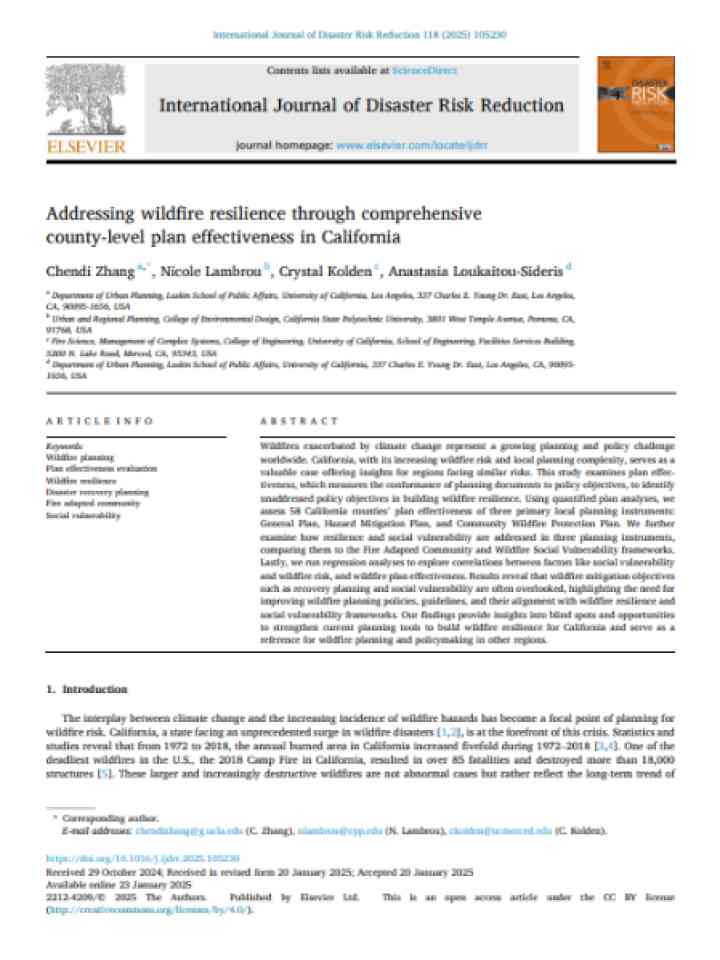Addressing wildfire resilience through comprehensive county-level plan effectiveness in California
Wildfires exacerbated by climate change represent a growing planning and policy challenge worldwide. California, with its increasing wildfire risk and local planning complexity, serves as a valuable case offering insights for regions facing similar risks. This study examines plan effectiveness to identify unaddressed policy objectives in building wildfire resilience. Using quantified plan analyses, the authors assess 58 California counties’ plan effectiveness of three primary local planning instruments: General Plan, Hazard Mitigation Plan, and Community Wildfire Protection Plan. The study further examines how resilience and social vulnerability are addressed in three planning instruments. Lastly, the study runs regression analyses to explore correlations between factors like social vulnerability and wildfire risk, and wildfire plan effectiveness.
Results reveal that wildfire mitigation objectives such as recovery planning and social vulnerability are often overlooked, highlighting the need for improving wildfire planning policies, guidelines, and their alignment with wildfire resilience and social vulnerability frameworks. The study's findings provide insights into blind spots and opportunities to strengthen current planning tools to build wildfire resilience for California and serve as a reference for wildfire planning and policymaking in other regions.
Explore further
